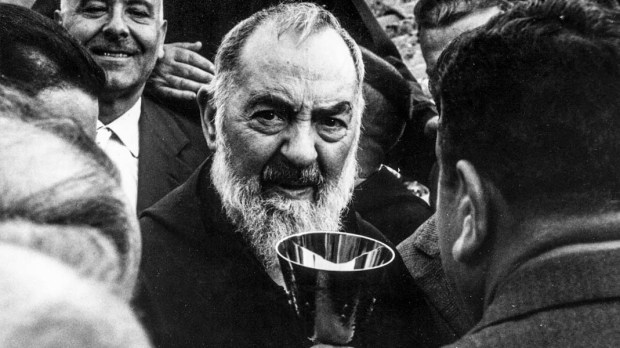I love coming out of confession. I even love going into confession, but examining my conscience ahead of time is so hard that I find myself making excuses to skip the sacrament. I tend to be scrupulous, and calling up memories of the sins I’ve recently committed opens the floodgates of a torrent of guilt and self-reproach. It’s overwhelming.
“How could I have let that happen? How could I have said that? What was I thinking?” They say the Devil is the great Accuser, but I regularly beat him at his own game. Partly, it’s because I really do feel remorse. I so badly want to do better — and my theory is that if I only berate myself enough, I can scare myself into not choosing that same sin, next time I have the choice.
I think a lot of us, scrupulous or not, are tempted to think that the depth of our repentance is evidenced by how horrible we feel about committing the sin. After all, that’s what guilt is for: to tell us when we’ve done something wrong. We should feel bad — actually, even the most sensitive among us probably don’t have a clear idea of how tragic sin really is. We don’t have God’s perspective.
In reality, though, all that self-imposed fear and self-directed rage are doing is keeping us away from God and his mercy, so all in all, not a great strategy.

Read more:
5 Inspiring quotes about the depths of Divine Mercy
Padre Pio, that great confessor, actually says that all that anxiety isn’t necessary, or even desirable:
Try your best, without excessive anxiety, to do with perfection what you ought and what you would like to do. Once you have done something, however, do not think about it anymore. Instead, think only about what you still must do, or would like to do, or are doing right then.
Walk in the ways of the Lord with simplicity, and do not torment yourselves. You should despise your shortcomings but with calm rather than with anxiety and restlessness. For that reason, be patient about them and learn to benefit from them in holy self-abasement.
I got a few takeaways from this brilliant quote, and it’s helped me examine my conscience more often, and more thoroughly.
True repentance doesn’t have to be drawn-out. It can be simple. It can be calm. It’s still real.
You don’t need to repent more than once. God isn’t stingy with forgiveness. He wants to forgive us more than we want to be forgiven. So repent once, and then focus on your present duty, instead of wasting time regretting something that’s impossible to change. God’s forgiveness is the only thing that can touch the past, and it already has.
“Love the sinner, hate the sin” applies to ourselves, too. Despising our shortcomings doesn’t mean we have to despise ourselves. God doesn’t.
This is the biggest one, though: Seeing our own shortcomings and being patient with them is actually a lot harder than taking the self-torment route. I noticed personally that I feel most anxious about my sins when I’m surprised by them, when I’ve let myself start thinking that I’ve been pretty decent and holy lately. But I shouldn’t be surprised at my own sinfulness. That’s where Padre Pio’s thing about holy self-abasement comes in. Accepting that I’m weak and I do sin — while still trying to do better — takes patience and humility, and encourages me to go to my merciful God, rather than trying fruitlessly to avoid him. And that, more than anything, is what God wants from us.

Read more:
Pope: What’s new and different about Christianity? Our God of mercy who takes no revenge

Read more:
These effective steps for changing bad habits are a lot like Confession

